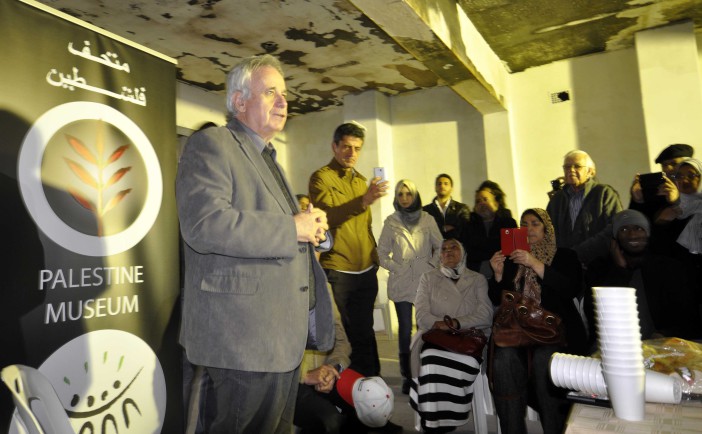“Post-Apartheid South Africa was an inspiration for me and an inspiration for many activists like myself.” These were the words of prominent Israeli historian and social activist, Professor Ilan Pappe during a visit to Cape Town this past weekend. Pappe is visiting the country in a nationwide tour to raise awareness and inform South Africans at large about the history of the Israeli-Palestine conflict. His historical perspective is meant to shed light on the misconceptions around the current military assault of Gaza, which has claimed the lives of 1700 Palestinians.
The academic’s talks in the city over the past few days drew hundreds of people to packed halls. Members of the public were eager to understand the facts surrounding Zionism and Israel’s policy of militarised aggression towards the Palestinians. At public discussions at Community House in Salt River and Islamic College hall, Pappe was highly praised for his knowledge and empathy on the Palestinians issue.
Many believe his wealth of knowledge, coupled with his fearless and uncompromising position on Israeli Zionism may have intimidated members of the South African Zionist lobby, who turned down a request to challenge him in a live television debate on ITV on Saturday night. The discussion nevertheless went ahead, without the Zionist point of view.
While Pappe has visited South Africa in recent years, this is the first opportunity he has had to address South Africans on the Israeli-Palestinian conflict.
“Most of the work I and my colleagues do for justice and peace in Palestine is inspired by South Africa,” Pappe said.
The scholar was one of the founding members of the Boycott, Sanctions and Divestment Movement in 2005.
“There is no doubt that the South African model was an important inspiration for what seems to be a very efficient and so far successful campaign to galvanise people in solidarity with Palestinian people as well as put pressure on Israel,” Pappe added.
According to Pappe, there were many unrecognised Palestinian historians whose account of what is happening in Palestine has gone unnoticed until it was “legitimised” by an Israeli Jewish historian such as himself.
“I was the first historian, in the eyes of the Israelis, who moved to the other camp,” he revealed.
“The effect was quite amazing. Palestinian historians are every good and professional and have been telling the truth of what has been happening in Palestine in general. The moment an Israeli historian says something based in Israeli documentation about the same subject, it is automatically considered. It’s unfortunate, but it’s true…”
“Historians are usually told not to involve ideology and politics and even moral issues in their writing… they are supposed to be objective scientists. My understanding of how history is written shows me that historians have a role in society,” he continued.
Pappe went on to say that historical narratives are crucial for advancing peace and justice in Palestine.
“It is part of racism that prevents people from listening to the Palestinians. It was Europe’s inability to come to terms with its own problem. The Nakba [The Catastrophe] came only three years after the Holocaust. Europe is still under the impact of the genocide on Jews. Instead of facing what it has done, Europe offered to support Israel. Zionism in Israel provided them with an easy way out,” Pappe said when talking about Europe’s policy toward Israel.
Meanwhile, Pappe said consciousness of Israel and its policy is spreading within the borders and confines of the State of Israel. But he said more should be done before anything within the borders of Israel changes.
“Opposition within the Zionist parties is insufficient and inefficient,” he said.
Asked about the roots of the Gaza military bombardment, Pappe said that Israel’s recent violent action toward Gaza was not precipitated by what some suggest was the killing of three Israeli settler boys. Instead he said that this was rather a PR stunt to ensure that Israel’s reputation in the outside world stays the same.
“The reason Israel attacked Gaza is the fact that the Palestinian leadership has decided on two objectives that Israel wants, by force, to fail. The first objective is the unity government. Like any colonialist power they feel better if they can divide and rule. They hope that by destroying Hamas they will weaken this unity government.”
“Secondly, the decision of the united Palestinian leadership to no longer be involved in what the US calls the peace process. They look at it and understand that it is an umbrella for Israel to continue the colonisation of the West Bank.
“So instead, Palestinian leaders took to the UN as it wants to be recognised as a state that demands justice on the basis of the human rights agenda. Israel is extremely worried more so about condemnation from the international community. Military power is meaningless if the world does not legitimise you,” Pappe concluded. VOC (Ra’eesah Isaacs)






 WhatsApp us
WhatsApp us 

